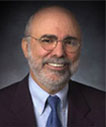Applications now open for Summer Institute 2010
Interdisciplinary research,
education and capacity building
5 May 2010
The fourth annual Summer Institute will offer short courses on digital media topics taught in Lisbon by instructors from UT Austin. The application deadline is May 30.
The Summer Institute 2010 is a unique event organized by the UT Austin|Portugal Program comprising several intensive courses that cover different areas of the Digital Media Program such as cinema, music and sound, animation and journalism, among others. The courses will be taught at the graduate level.
The Summer Institute’s activities will be taught by renowned UT Austin Professors and aim to increase our understanding of and abilities to work with digital media technologies.
Program
Digital Journalism for a Network Society – Rosental Alves – June 21st to July 2nd
Intermediate Animation Workshop – Geoff Marslett – July 12th to 30th
Documentary Mash-Up – Karen Kocher – June 14th to July 2nd
Digital Cinema – Tom Schatz – June 21st to July 2nd
How to Apply
Interested prospective applicants should send an application letter, to up to a 350 words, and CV (all in English) for each Course to which they wish to apply. The name of the Course should be written on the subject of the email (one email per Course). Please also state your full name, address, telephone number, age and highest degree achieved.
Email your applications to utaustinportugal@fct.mctes.pt. The deadline is Sunday, May 30th.
Fee per Course: 30€ (paid only by the selected applicants to the universities where the Courses will take place).
Course Descriptions
 Digital Journalism for a Network Society with Rosental Alves.
Digital Journalism for a Network Society with Rosental Alves.
June 21-July 2 (Monday-Friday only), location TBA.
3 hours daily including lab 5pm-8pm. Taught in Portuguese.
This two week course for graduate students and professional journalists explores the transformational effects of the Digital Revolution on journalism, from the disruption of the industrial era business models to the innovative ways to gathering, processing and disseminating news and information through multiple digital platforms. After briefly reviewing the contemporary literature on the emergence of a "network society," the course will be dedicated to the study of current trends in online/digital journalism, based on case studies. Special emphasis will be given to the entrepreneurial aspects of practicing journalism in these transformational times, which may include the elaboration of individual or team projects of a journalistic enterprise (nonprofit or for-profit) that could be launched in Portugal and/or in the Portuguese speaking world.
Este curso de duas semanas que se destina a estudantes de pós-graduação e jornalistas profissionais, explora os efeitos transformativos da Revolução Digital no jornalismo, da ruptura dos modelos de negócios da era industrial às formas inovadoras de recolher, processar e disseminar notícias e informações através de múltiplas plataformas digitais. Depois de uma breve revisão da literatura contemporânea sobre o surgimento de uma "sociedade em rede", a maior parte do curso de será dedicada ao estudo das actuais tendências do jornalismo online/digital, com base no estudo de casos. Será dado ênfase especial aos aspectos de empreededorismo na prática do jornalismo nestes tempos de mudança, culminando na elaboração de projectos individuais ou de grupos de empreendimentos jornalísticos (com ou sem fins de lucro) que poderiam ser lançados em Portugal e/ou no mundo lusófono.
 Documentary Mash-Up with Karen Kocher.
Documentary Mash-Up with Karen Kocher.
June 14-July 2 (Monday-Friday only) at FCSH/UNL.
3 hours daily 10am-1pm including lab.
The geo reference web tools (like Google Earth, Google Maps, etc) have spawned new art forms that connect the physical to the virtual world. In this 3-week workshop participants use video, audio, still images, in short traditional documentary practice, and combine this with mapping tools like Google Earth to create an interactive experience for the user.
 Intermediate Animation with Geoff Marslett
Intermediate Animation with Geoff Marslett
July 12-30 (Monday-Friday only) at FCT/UNL.
4 hours daily 10am-12pm and 2pm-4pm.
A three-week intermediate animation class utilizing FLASH, AFTER EFFECTS, and an audio editing program. This will be a project-oriented class in which each student focuses on the creation and completion of a one to three minute animated film. They will have the choice of either a documentary or narrative production. The first week will focus on script writing, project planning, storyboarding, character design, timing, and creation animatics. Students will also acquire their initial audio during the first week. In the second week they will use Flash to create all of the character, environments, and animation necessary to bring their story to life. During the third week the students will use After Effects to assemble the animation into a coherent film, composite the work, add effects, and do a final sound fx design and edit. The class will culminate with students’ final projects, exported out of After Effects and onto DVD.
The goal of the class will be threefold. First, students will learn animation project conception, planning, and management. Second, they will learn intermediate techniques and skills to help them realize their animated films. Third, they will be expected to critique, edit, and improve upon their ideas to actually create a polished short animated film.
 Digital Cinema with Tom Schatz.
Digital Cinema with Tom Schatz.
June 21-July 2 (Monday-Friday only) at FCSH/UNL.
2 hours daily 2pm-5pm, plus screenings.
This course will focus on digital films and filmmaking - the mode of production and the aesthetics (style, genre, formal technique, narrative composition) of digital cinema. The course will examine the work (and the working methods) of contemporary filmmakers like Steven Soderbergh, Danny Boyle and Michel Gondry, who have successfully created digital feature films and also have worked in other forms and genres, from experimental films to television commercials to music videos. The course also will look closely at specific feature films like The Hurt Locker, Rachel Getting Married, and Frozen River that use digital video technology in particularly distinctive and effective ways.

 News
News
